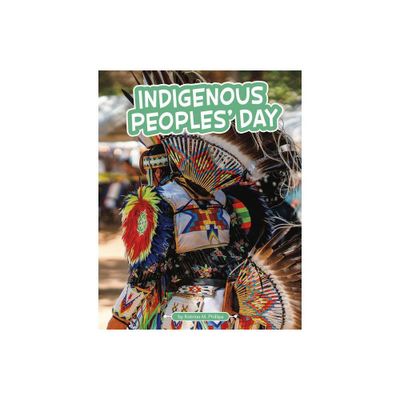Home
The Routledge Handbook of Australian Indigenous Peoples and Futures
Loading Inventory...
Barnes and Noble
The Routledge Handbook of Australian Indigenous Peoples and Futures
Current price: $270.00


Barnes and Noble
The Routledge Handbook of Australian Indigenous Peoples and Futures
Current price: $270.00
Loading Inventory...
Size: Hardcover
*Product Information may vary - to confirm product availability, pricing, and additional information please contact Barnes and Noble
Providing an international reference work written solely by Aboriginal and Torres Strait Islander authors, this book offers a powerful overview of emergent and topical research in the field of global Indigenous studies. It addresses current concerns of Australian Indigenous peoples of today, and explores opportunities to develop, and support the development of, Indigenous resilience and solidarity to create a fairer, safer, more inclusive future.
Divided into three sections, this book explores:
• What futures for Aboriginal and/or Torres Strait Islander peoples might look like, and how institutions, structures and systems can be transformed to such a future;
• The complexity of Aboriginal and Torres Strait Island life and identity, and the possibilities for Australian Indigenous futures; and
• The many and varied ways in which Aboriginal and Torres Strait Islander peoples use technology, and how it is transforming their lives.
This book documents a turning point in global Indigenous history: the disintermediation of Indigenous voices and the promotion of opportunities for Indigenous peoples to map their own futures. It is a valuable resource for students and scholars of Indigenous studies, as well as gender and sexuality studies, education studies, ethnicity and identity studies, and decolonising development studies.
Divided into three sections, this book explores:
• What futures for Aboriginal and/or Torres Strait Islander peoples might look like, and how institutions, structures and systems can be transformed to such a future;
• The complexity of Aboriginal and Torres Strait Island life and identity, and the possibilities for Australian Indigenous futures; and
• The many and varied ways in which Aboriginal and Torres Strait Islander peoples use technology, and how it is transforming their lives.
This book documents a turning point in global Indigenous history: the disintermediation of Indigenous voices and the promotion of opportunities for Indigenous peoples to map their own futures. It is a valuable resource for students and scholars of Indigenous studies, as well as gender and sexuality studies, education studies, ethnicity and identity studies, and decolonising development studies.


















